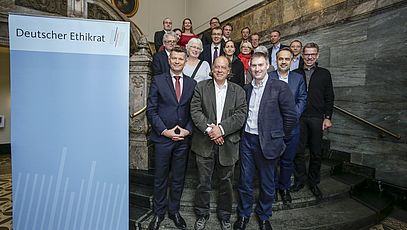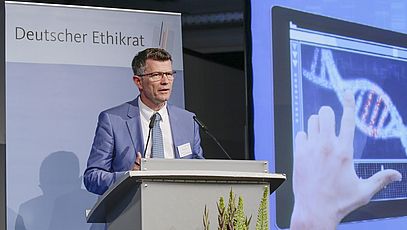Genomics/Gene Technology
New developments in genetic research and technology allow increasingly comprehensive insights and interventions in the genome. Advances in the sequencing of genes and gene products, as well as in the functional analysis of their interactions with each other and with other factors, allow an increasingly precise understanding of how genes act in a tissue- and situation-specific manner. New genetic engineering methods such as genome editing make it possible to manipulate several genes simultaneously, with drastically increased precision, much faster and more cost-effectively than before.
The resulting perspectives for tailor-made interventions in the genomes of plants, animals and humans pose new challenges on society and bring already known questions back into the focus of ethical discussions. Research and applications on plants and animals, for example, focus on the question of what is still considered a genetically modified organism and has to be regulated accordingly and what isn't. Also the question arises whether the definition of genetic engineering in the Genetic Engineering Act needs to be fundamentally revised. The opportunities and risks of so-called gene drive approaches, in which elements that are specifically introduced into the genetic material of pests spread throughout the entire population as quickly as possible and eliminate undesirable properties, are also controversially discussed. When applied to humans, interventions in the human germ line and their effects on future offspring, as well as certain methods of genetic diagnostics are particularly controversial.




